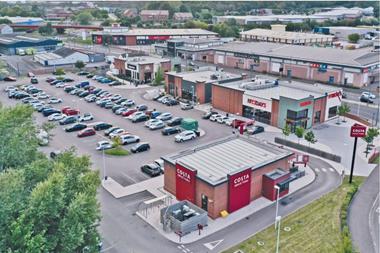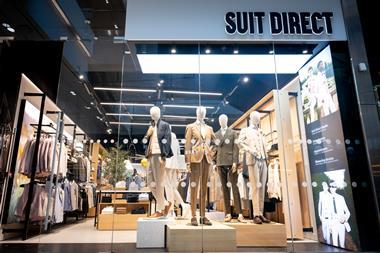It is generally recognised that the retail industry today is facing greater challenges than ever before, as the sector evolves to the rapidly changing consumer landscape.

However, despite the hysteria in the run-up to Christmas and consumer spending under pressure, trading over the Christmas period was better than expected for a number of retailers. Clearly, as the old retail adage goes, sales are vanity, and given the obvious impact on margin of discounting across the sector, we’ll have to wait for the far more important earnings numbers over the next couple of months.
But as I sit here in the third week of January, this relative out-performance in sales trading over Christmas is being reflected in a bit of a bounce in the share prices of a number of food and non-food retailers, and indeed the general retail sector as a whole.
A common theme of retailer results has been a decline of store sales offset by growth online, which may be interpreted as evidence that the internet is killing the high street. However, this reading is too simplistic.
Retailers and property owners see online and instore as complementary rather than competitive channels. Technology has changed how we live, work and shop, with the online and offline worlds more blended, as consumers are increasingly looking for experience, convenience and great service.
Some of the most successful retailers over the Christmas period, such as JD Sports, Next, Dunelm, Tesco, Selfridges and Joules have invested in their portfolios to create better customer experiences and drive sales, both in-store and online.

Why interesting? Strong Christmas sales saw Britain’s biggest sports retailer report a like-for-like sales increase of more than 5% in the 48 weeks to 5 January. Unlike rival retailers, JD Sports didn’t resort to making heavy price cuts over the festive period – making the trading figures even more impressive.
What’s next? It now expects profits for the year to 2 February to hit the top end of analysts’ forecasts, which range from £325m and £352m. It will press on with its expansion into the US after buying retailer Finish Line in March for £396m. It has since converted five stores to JD Sports and plans to convert up to 15 more in the first half of this year.
Property strategy Its stores are crucial to the business despite the rise of online sales. In its September half-year results, JD Sports said: “The often social nature of consumers’ shopping trips and impulsive nature of their buying decisions combined with the importance of cash to a high proportion of our demographic, means that we expect physical retail to retain most of its current level of importance. The store base remains essential to brand awareness, the customer’s desire to see, handle and try the product, and our ability to provide multiple delivery points.”
With 85% of sales touching a physical store, it is clear our high streets, shopping centres and retail parks remain an integral part of the shopping experience. However, we need a more modern means of taxation, a more agile planning system and more investment in small scale infrastructure improvements which reflect and support the changing role of urban centres and how they are used by businesses and consumers.
The UK retail property industry has an enormous impact not only on the economy, but also on people and places. It forms part of all our everyday lives, helping to create vibrant and resilient communities. Public policy and legislation need to keep up, as do many of the models that underpin our industry. Without this, which can only happen through partnership, the business environment for our sector will remain challenging.



























![Metrocentre 01[22]](https://d2bq2usf2vwncx.cloudfront.net/Pictures/380x253/4/6/5/1885465_metrocentre0122_225193.jpg)




No comments yet